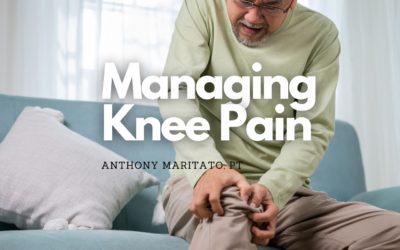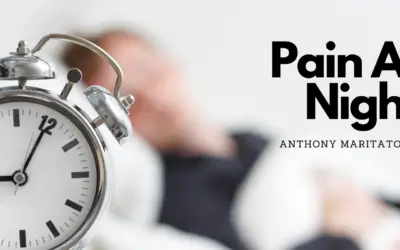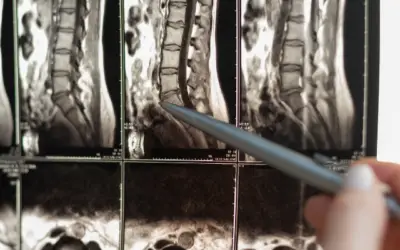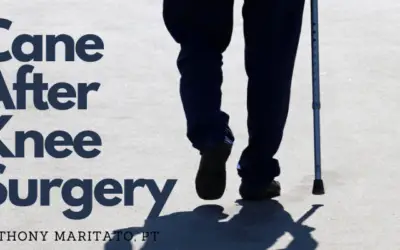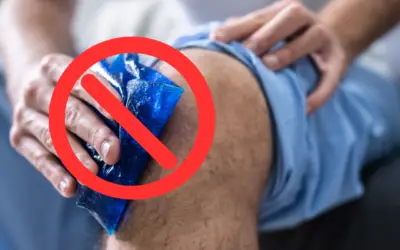KNEE PAIN – Why Does My Total Knee Replacement Still Hurt So Much
Persistent Knee Pain After Total Knee Replacement Surgery
Pain is a highly complex human experience that cannot be easily explained by mechanical problems.
It is possible to have scar tissue without pain. It is possible to have limited range of motion without pain. It is even possible to have redness and swelling without pain.
But many of the patients I work with in my physical therapy clinic who are experiencing persistent pain after total knee replacement are experiencing all of these impairments AND pain.
What percent of total knee replacements are successful?
By several accounts nearly 20% of patients are not happy with the outcome of their total knee replacement. [1]
Why does my total knee replacement still hurt?
One of my favorite clinical studies reviewing different aspects of pain following a total knee replacement is The painful knee after total knee arthroplasty: evaluation and management. [2]
A list of the most common causes of pain:
- Infection
- Mechanical Instability
- Loosening of the component
- Periprosthetic fracture
- Anterior knee pain
- Overhang
- Non-Joint Causes:
- Soft tissue irritation
- Neuropathic pain
- Complex regional pain syndrome
In future updates to this article, I will be providing more details on the above conditions.
What is considered normal knee pain?
Many of the patients I work with in my physical therapy clinic will ask “Is this normal?”
There is something calming about knowing the pain you feel is normal or common.
Normal Knee Pain After Joint Replacement Surgery
Normal knee pain would be characterized by soreness throughout the knee, thigh, and calf. It is often described as a 4 out of 10 increasing to a 7 out of 10 at the most.
Patients will report the first 24 hours after surgery feeling lower pain levels than compared to the next 48 to 72-hour. After 72 hours the pain levels should reduce to a more comfortable level.
Normal pain may increase with activity and normalize with rest. Normal pain often responds well to pain medication, icing, or moist heat.
What are Abnormal Pain Levels
Abnormal pain would be characterized by pain that increases throughout the day and doesn’t relent with pain medication, icing, or moist heat. High pain levels cause increased respiration rates, sweating, and signs of stress.
Abnormal pain may cause loss of appetite, nausea, and anxiety.
In these cases, it is important that the patient contact the surgical team for a possible change in pain medication or further medical assessment.
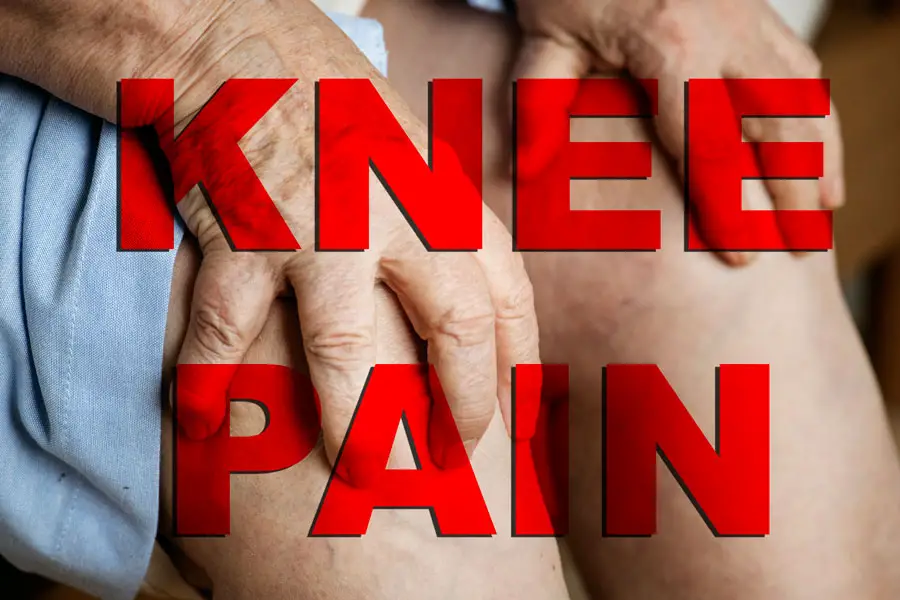
Infection After Total Knee Replacement
While it is true that an infection may also cause pain after a total knee replacement, an infection may also be present without pain. Some classic warning signs to watch for infection include:
- Excessive and worsening redness
- Seepage, drainage, or oozing
- Redness that progressively extends away from the knee
- Increased warmth at the knee
- Increased body temperature
If you or your therapist have reasons to suspect a possible infection, it is important that you contact your surgical team or go to your local emergency room for further medical assessment.
Mechanical Instability
There have been reported cases in which the prosthesis implanted during a total knee replacement surgery becomes unstable or the ligaments surrounding the knee become ruptured.
Mechanically instability is often associated with an unsafe feeling while walking to stepping on the surgical leg, but it isn’t often associated with pain in the knee joint.
A knee that has become mechanically unstable is loose and therefore patients do not feel the pain associated with knee stiffness.
Citations and Reference:
More Blog Posts …
Managing Pain After Total Knee Replacement
Introduction to Managing Pain After a Knee Replacement Undergoing a total knee replacement is a significant medical procedure that can dramatically improve your quality of life. However, the journey to full recovery involves navigating through various challenges, one...
Total Knee Replacement Pain at Night
What to Expect Explore our comprehensive guide on managing 'Total Knee Replacement Pain at Night.' Learn about the causes of night pain, effective pain management strategies, best sleeping positions, and more. This article provides practical advice to help individuals...
Overview of Spinal Stenosis
Table of Contents What is spinal stenosis What are the symptoms of spinal stenosis How is spinal stenosis diagnosed What are the different types of treatment for spinal stenosis Where to find more information 1. What is spinal stenosis Spinal stenosis is a condition...
Spinal Stenosis Exercises to Avoid: During Knee Replacement Recovery
Spinal stenosis is relatively common among adults having a total knee replacement surgery. While spinal stenosis doesn't always impact total knee replacement recovery, when it does, it can be frustrating. Before I specialized in treating patients after a total knee...
Ride a Peloton After Knee Replacement Surgery
Table of Contents When can I return to riding my Peloton bike at home after a total knee replacement? Is a Peloton bike good physical therapy after a total knee replacement surgery? Will riding my Peloton too much wear out my new knee? How often should I ride my...
How to Use a Cane After Knee Surgery
Table of Contents Understanding the Purpose of Using a Cane after Knee Surgery How to Properly Use a Cane after Knee Surgery Common Mistakes to Avoid When Using a Cane Transitioning from a Walker to a Cane: When and How? Understanding the Purpose of Using a Cane after...
Ice Machine for Knee Surgery
Table of Contents Benefits of Using an Ice Machine After Knee Surgery How an Ice Machine Works Top Ice Machines for Knee Surgery Recovery How to Use an Ice Machine After Knee Surgery Where to Buy an Ice Machine and What to Consider Benefits of Using an Ice Machine...
Walking Your Dog After Knee Replacement Surgery: A Timeline for Recovery
Table of Contents Introduction Walking Your Dog After Knee Replacement Safety Considerations and Precautions Conclusion Introduction Hello, fellow dog lovers and knee replacement warriors! I'm Anthony Maritato, a licensed physical therapist specializing in post-total...
Top 5 Mistakes After Knee Replacement
In this article I will share my experience as a physical therapist and personal trainer of more than 22 years treating patients after total knee replacement surgery. I have seen patients who made every mistake possible and still had a great outcome following this...
Disadvantages of Knee Replacement Surgery
Table of Contents Introduction Pain Time Lost Cost Stress Post Surgical Risk or Complications Conclusion Introduction When considering treatment options for severe knee arthritis, one commonly considered intervention is knee replacement surgery. Despite its high...
